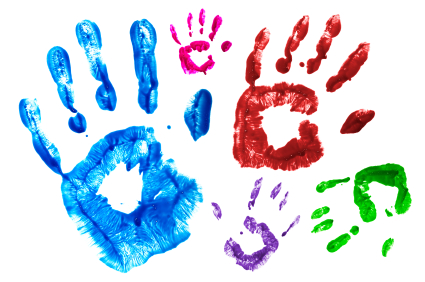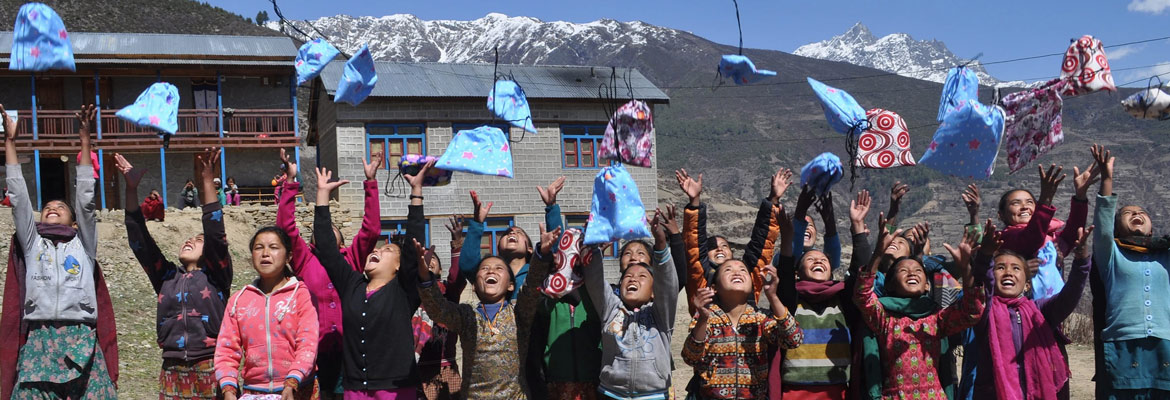
Re-usable Menstrual Hygiene Kits
I learned of these Days for Girls re-useable menstrual hygiene kits from my friend, nurse Tsering Wangmo, co-director of Nomad’s Clinic. Nomad’s Clinic is a team of medical volunteers who, every year, make a month-long journey into the most remote regions of the Himalayas and Tibetan Plateau to provide medical and humanitarian aid.
Laila Bergman, a nurse with Nomad’s Clinic, wrote,
“Women walk for days in the hopes of getting a kit for themselves or a young girl in their family. This small kit contribution makes a colossal difference to girls and women in rural Nepal, as it allows women to receive education by not missing school during their periods. Dignity for all!”
Period poverty can keep girls out of school for enough of the year that they fail their grade.
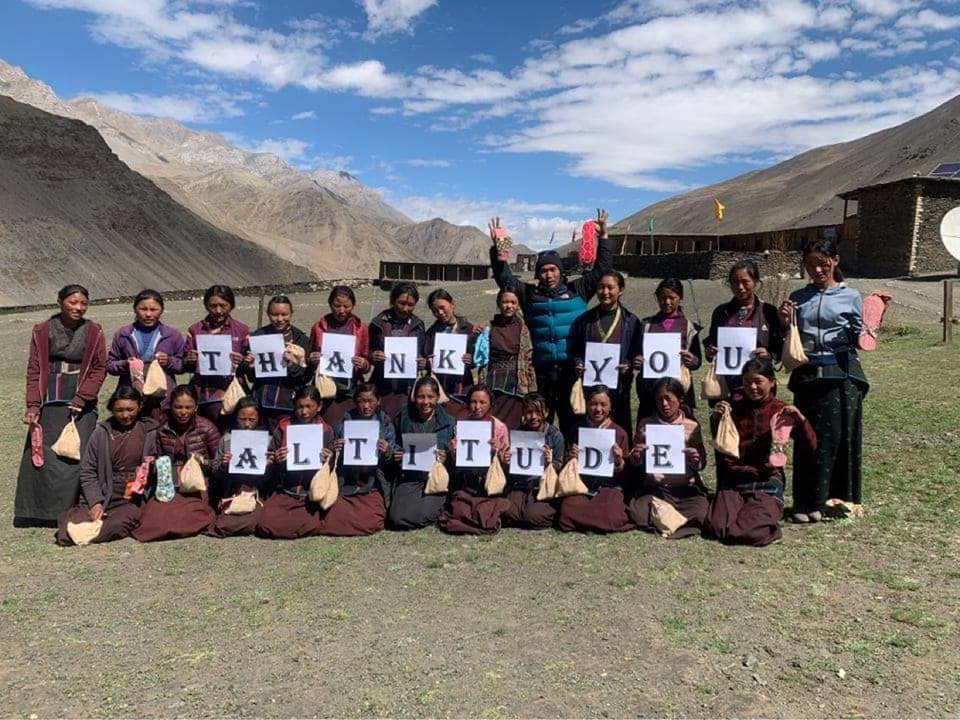
Altitude Project provided 200 of these kits in 2019, and another 200 in 2020. In 2021 we partnered with Nomad’s clinic. Tsering Wangmo organized the order and delivery of 400 menstrual hygiene kits to the women and girls in the villages of Shimen and Tinje, and for 50 kits to be delivered to Namdo as requested by ward chairman Pemma Wangchen.
The kits are only $10 each but are life changing for the girls and women of the Dolpo.
Women’s Health Workshop
Nurse Tsering Wangmo leads women’s health and menstrual hygiene classes in each village.
She is dedicated to changing social norms and beliefs and to transforming the health, dignity, and life opportunities of girls and women.
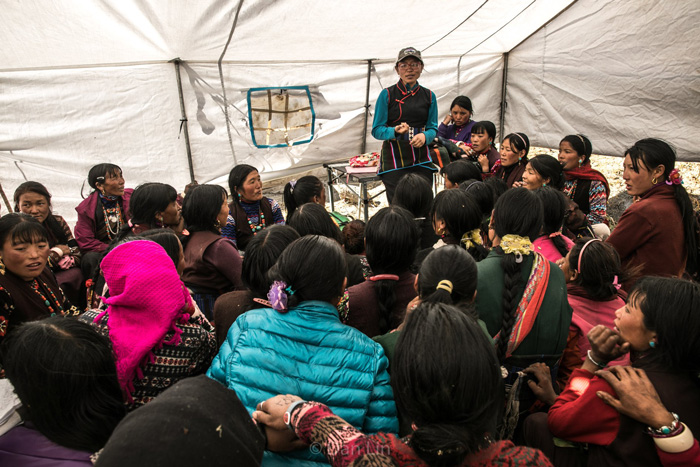
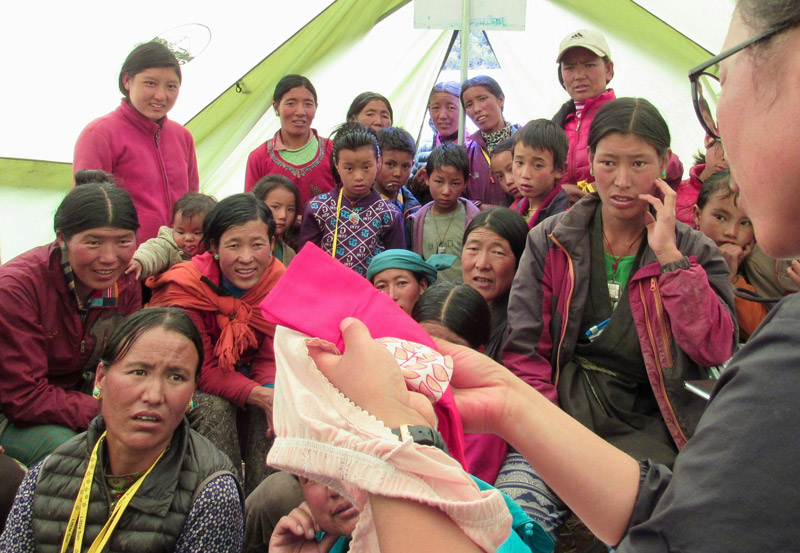
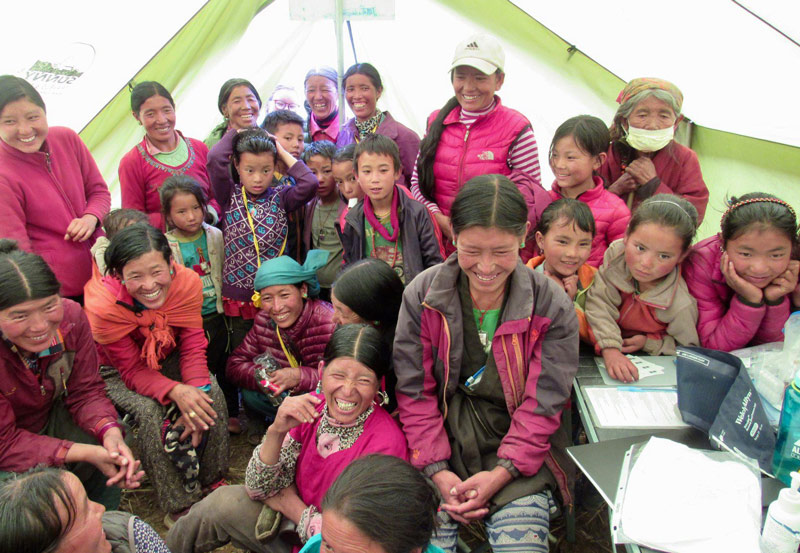
photos courtesy of Laila Bergman
“Women in these high altitude villages have no access to any menstrual products and they bleed on rags or their pants, which they are unable to wash most of the year (no running water, freezing weather, owning only one pair of pants). Women’s lives are hard in the mountains. They do a lioness’ share of the domestic duties and farming and everything else. It’s really amazing how something this simple can really improve women’s lives.”
– Wendy Lau MD, clinic coordinator
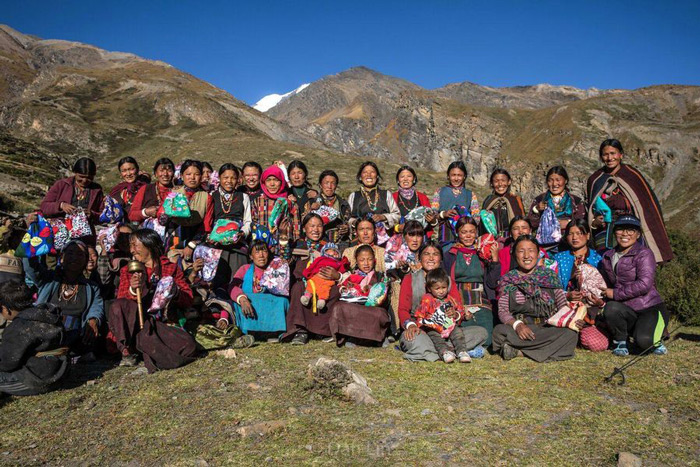
Dolpo women with precious hygiene kits
photo credit – Dan Lin
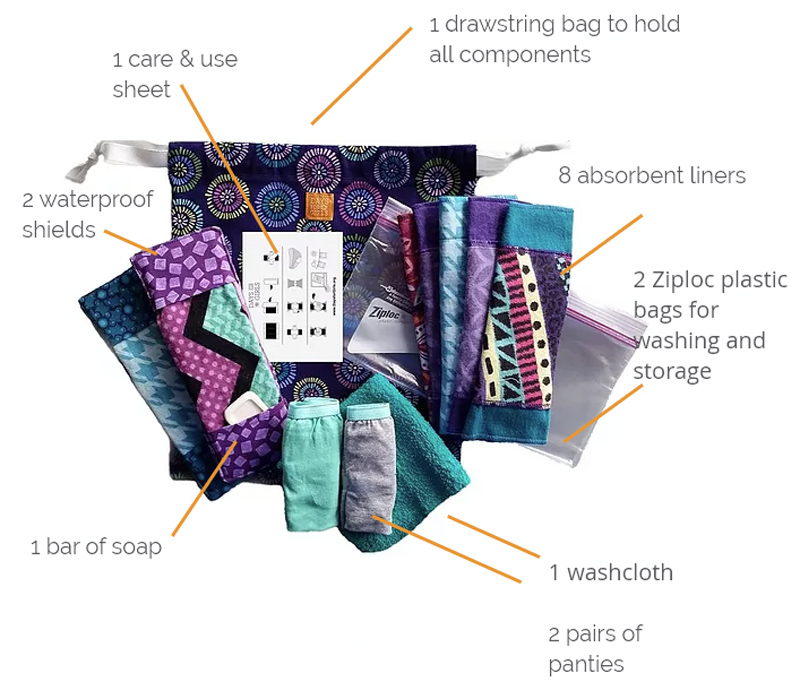
These kits don’t look like traditional pads…and there’s a reason for that. The bright colours camouflage staining. The absorbent liners unfold to look like a washcloth, which allows women to wash and dry them outside in the sun without causing embarrassment.
Each colorful kit contains underwear and 8 reusable menstrual pads, as well as soap, a snap in system and carrying bag. The kits are washable and can last up to five years.
Even though the schools here do not go beyond grade 6, the students range in age from 3 to 16. (Students often start late, and, because they are needed to help with household and agricultural/herding chores, they often miss so many classes that they must repeat a grade.) Girls without access to menstrual pads often stay home. If they miss an average of four days of school each month, that is 20 per cent of the school year. Too often this leads to lower grades or to dropping out of school altogether.
photo credit – Cira Crowell
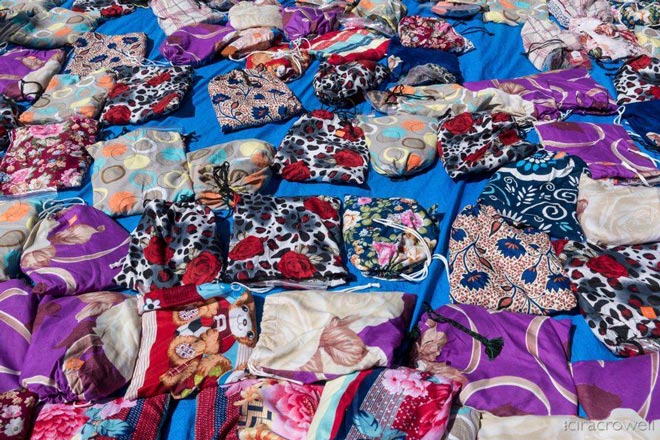
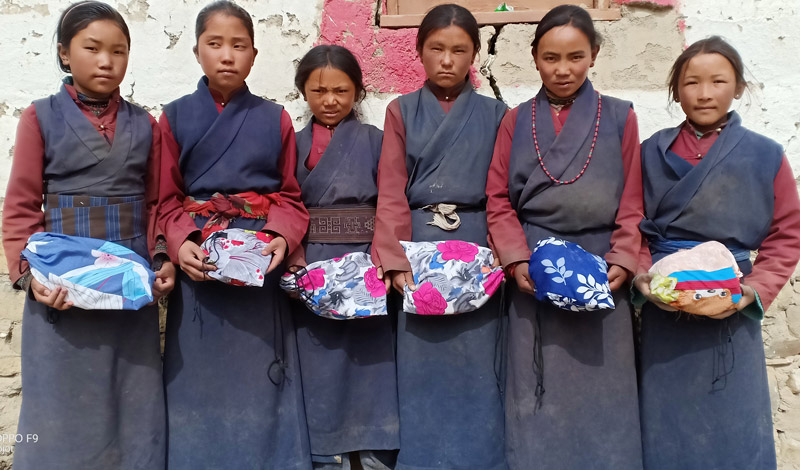
“A lack of sanitary products, and negative cultural norms reduce girls’ school attendance. Being able to manage their menstruation safely, hygienically, and with confidence and dignity is critical not just for their health and education, but also for economic development and overall gender equality.” – World Bank
|
|
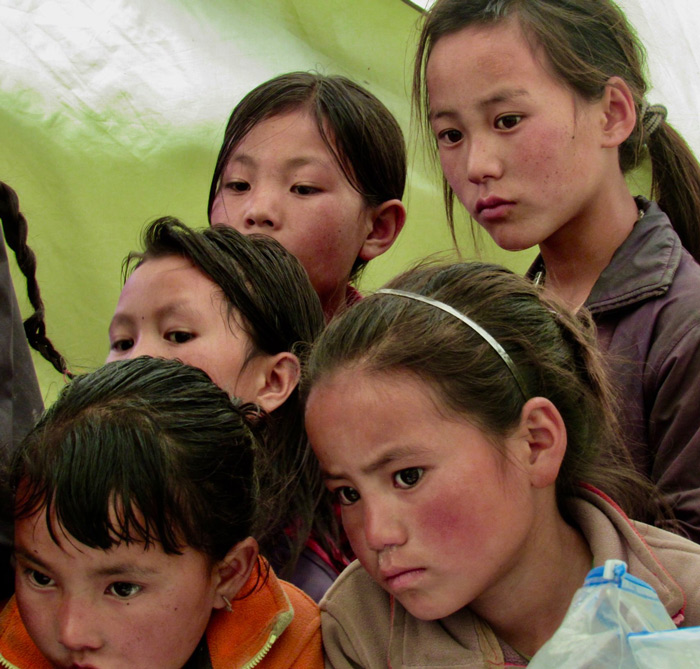
photo credit – Laila Bergman
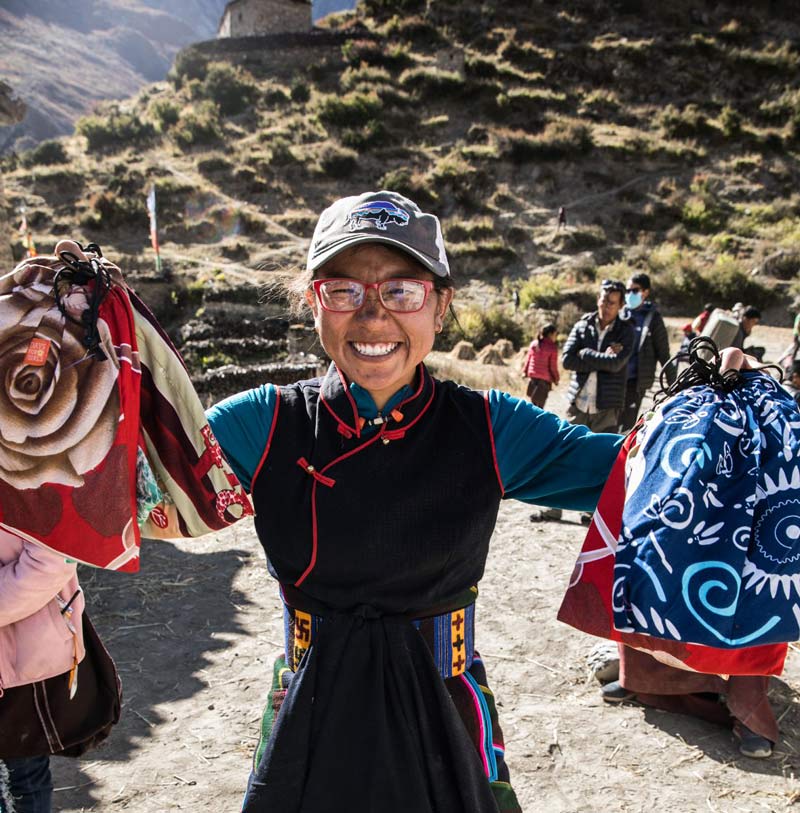
Tsering Wangmo with reusable menstrual hygiene kits
photo credit – Dan Lin
“Empowering women doesn’t have to be a big project. Understanding their daily live’s challenges and supporting them in overcoming these challenges in any way possible is a way of empowerment.”
– Roshi Joan Halifax, founder and director of Nomad’s Clinic
photo credit: Dan Lin
Tsering Wangmo also wrote, ‘The world would definitely be a better place if every individual carried the intention for being of service and sharing like those who served in the Nomads Clinic. May we be able to integrate our happiness, learning, and experience and reach further.’
- Read Rebecca Solnit’s article “Medical Mountaineers” published in The New Yorker to get a feel for this journey of service.
- Visit the Nomad’s Clinic website for more stories, pictures, and updates.
photo credit: Dan Lin
“Never believe that a few caring people can’t change the world. For, indeed, that’s all who ever have.”
― Margaret Mead

